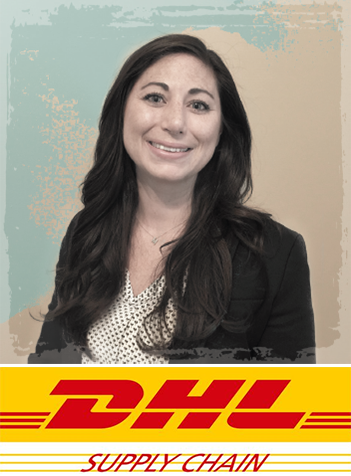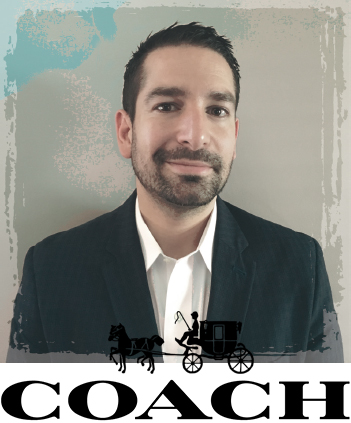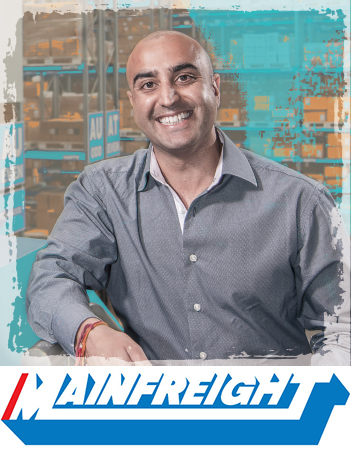Millennial Managers: How Today’s 30-Somethings Are Re-Energizing the Supply Chain Profession

How do Millennials in our profession think and act, and what drives the successors of today’s supply chain leaders? Supply Chain Management Review interviewed four up and coming 30-something managers from varied backgrounds and supply chain specializations to help answer these questions.
What’s with the Millennials?
That peevish question is often behind the headlines deploring America’s shortage of skilled labor: The implication is that Millennials - the 20-and 30-somethings who should be easing employers’ help-wanted headaches - have a different attitude toward work than did their elders.
While they are regularly characterized as bright, collaborative, creative and digitally savvy, Millennials are also described as entitled, mercurial and self-centered individuals.
Both perceptions are generalizations at best, and neither should inform practical hiring plans or retention programs.
To get a first-hand look at how Millennials in our profession think and act - and to give today’s supply chain leaders a feel for their eventual successors - Supply Chain Management Review interviewed four up and coming 30-something managers from varied backgrounds and supply chain specializations.
What did we find? Yes, some have indeed job-hopped; yet others have been with one employer all of their working lives. They are digitally savvy, but they are also business savvy and highly engaged. They are ambitious, but realistic.
Perhaps most notably for the health of the profession, they exhibit strong streaks of outreach and collaboration and a commitment to supply chain management.
Meredith Marsico: Paying it Forward
Not yet 32, Meredith Marsico is paying it forward for the next generation of supply chain leaders.
In her spare time, she co-chairs a breakfast speakers program that often attracts 100 students at the Center for Supply Chain Management at the University of Pittsburgh, where she earned her MBA.
“It’s great to see students get excited about supply chain topics,” she says.
Of course, Marsico is not that far removed from those students, having launched her career with a management consulting firm some nine years ago.
Marsico says the job, which required a great deal of interaction with customers, prepared her for her current position as director of solution design at DHL Supply Chain, where she is part of a 40-strong solutions design team responsible for everything from the design and implementation of a solution to the ongoing operation of the resulting network, if the customer requires such outsourcing.
“My overarching role is to provide a solution that addresses a customer’s pain points, whether it involves distribution, transportation or reverse logistics”
One current project involves the transformation of a large manufacturer’s production network by consolidating roughly 30 different distribution centers into fewer than half a dozen. The emphasis is on decreasing costs, boosting overall network efficiency and reducing transit times.
While designing such a network transformation may take just a couple of months, implementation of the plan can take up to two-and-a-half years.
A typical day for Marsico might touch on “everything from data analytics and design work up to presenting materials that express the solution in ways that the customer can understand,” she says. “There’s the data aspect but there’s also the art aspect - what you gather from conversations that you don’t really see in the data.”
Marsico is a self-described operations wonk. While she earned a bachelor’s degree in mechanical engineering at Loyola College in Maryland, she was drawn more toward operations management than manufacturing.
“I was lucky to have a professor who had a lot of industry experience, and who helped me better understand my career opportunities within operations,” she says. That led directly to an MBA program that emphasized operations management while providing a solid grounding in business.
While still in school, Marsico interned with a company as a network analysis specialist; her coursework also involved a transportation management project for another business. “Those all gave me the bigger picture of how supply chain and logistics fit into the day-to-day operations at a business,” she says.
During her three years in consulting, Marsico built up a body of expertise in areas ranging from value stream mapping and gap analysis to project management and client interaction; her largest project was an 18-month process improvement engagement for a government agency.
She moved into the 3PL sector in 2010, starting as a solution design analyst at GENCO before being promoted to the 3PL’s director of solution design. She joined DHL Supply Chain in January 2016.
While Marsico finds the outcomes of her work enormously satisfying, there are things about the practice she would like to see changed - foremost among them is her belief that supply chain remains slow to change with regard to the adoption of emerging technologies such as the Internet of Things.
“I’d like to see supply chains become more dynamic and less reactive,” she says. And although she has seen the profession become more diverse in recent years, she contends that there still aren’t enough women in key roles, hence she is also a role model at those breakfast confabs at the University of Pittsburgh.
But those frustrations may well present new opportunities for future phases of Marsico’s career. Having spent nearly a decade designing supply chains, she’s keen to run a global supply chain one day, and attends her share of CSCMP conferences to acquire new skills and insights that will help bring that goal closer. It’s a safe bet that Marsico will keep paying it forward throughout her career.
Nick Ammaturo: Scouting and Sustaining Supply Chain Talent
Two years ago, Nick Ammaturo was identified as a “30 under 30 Rising Star” by the Institute for Supply Management (ISM) and ThomasNet.
Now a director of global procurement at Coach, the luxury leather goods company, he has a history of solid accomplishments at companies including PepsiCo and Avon.
At 32, he is the youngest ever president of an affiliate chapter of ISM.
At the same time, it could be argued that with seven employers in 10 years, Ammaturo fits the stereotype of the restless Millennial, ready to hop to the next shiny opportunity at a moment’s notice. But that would not accurately depict his career.
In June 2006, after graduating from Villanova with a bachelor’s degree in business administration, he interned in London with consultancy KPMG before taking a job as a marketing and financial planning analyst in the Beijing offices of the research firm Ipsos. But it wasn’t until he got a call from a recruiter that he made the jump into supply chain, as a senior analyst in PepsiCo’s global procurement group.
One of his early accomplishments at PepsiCo was the establishment of quarterly reporting/commodity scorecards for the chemicals used in plastics manufacturing. The scorecards, which tracked how those chemicals markets correlated to crude oil fluctuations, brought him to the attention of the company’s CEO in mid-2008, when crude oil prices reached an all-time high.
By November 2010, Ammaturo had become a senior buyer, managing day-to-day responsibilities for beverage corrugate and olefin-based secondary packaging across PepsiCo’s network. “We did some things in packaging that really changed the industry,” he recalls, noting that PepsiCo went so far as to hire a scientist to understand how paper is made. The worldwide savings generated from actions such as moving from slotted containers to trays ranged from 10% to as much as 30%.
Other jobs followed. At FM Facility Maintenance, Ammaturo directed a cross-functional team for a large global retailer that saved the client about 15% in cumulative maintenance costs, ranging from lighting and plumbing to elevators and food service equipment.
That was followed by stints at Avon’s center of excellence for the global sourcing and supply chain and as director of profit improvement and procurement at Hudson’s Bay Co., where he was tasked with developing carefully calibrated implementation plans that produced consistent savings.
It’s early days yet at Coach - he started there in March 2016 - but his approach is always the same: collaborate with all pertinent parties; dig deeply to expose the roots of the challenge; assemble the right resources to deliver a substantial solution; and leave behind systems to ensure that the company can perpetuate the benefits of the solution.
If there is one theme that runs throughout Ammaturo’s professional life, it’s something he calls “talent sustainability.” “I’m always disappointed to hear that good talent quit because they didn’t get promoted or they weren’t motivated,” he says.
It something he experienced early in his career when he was warned that he was being promoted too quickly, yet he was over-performing in his role.
“There’s a misconception about the work ethic of Millennials, organizations need to figure that out before they start losing a lot of talent”
He’s vocal with his peers; he and a group of like-minded young supply chain professionals are pushing to get more of their peers involved at a national level with organizations such as ISM. “I want other young professionals to see that there are resources to help them build their careers,” he says.
He also believes that technology is the future of supply chain management, especially social media tools. Ammaturo led his ISM chapter to overhaul its Website to be more mobile friendly to a generation that has grown up with smartphones.
He mentions procurious.com, a network for a new generation of procurement professionals, which he says enables them to collaborate globally by posting questions and answers about challenges specific to their professions or industries or roles. And, he points to LinkedIn, where he posts, as a powerful tool for career building. “It has huge leverage for increasing your social brand,” he notes.
Shreya Patel: Purpose Beyond Profit
Anyone familiar with the message behind Dove ads will get a sense of what motivates 33-year-old Shreya Patel.
Instead of lauding the cleansing abilities of Dove soaps - one of Unilever’s top Sustainable Living Brands - the ads celebrate the vitality of women everywhere. It’s an empowerment message that echoes across Unilever’s business.
That theme is also reflected in the scope of Patel’s position as Unilever’s environmental and sustainable operations manager in North America - part of the safety, health and environmental (SHE) group in the corporate offices located in Englewood Cliffs, NJ.
It’s her job to understand and help reduce Unilever’s impact on water, air, fossil fuels, contaminants and waste output - which helps position the consumer goods company as a leader in sustainability and environmental consciousness.
It’s a job that, like the Dove ads, clearly speaks to a purpose beyond profit. “The interesting part about being at Unilever is that most jobs are not driven by roles and responsibilities, they’re driven by purpose,” she explains.
“Unilever believes in brands with a purpose and also in people with a purpose.” Patel adds that in the business community at large, there’s a lingering perception that sustainability takes a lot of time without contributing much to the bottom line. Yet Unilever’s Sustainable Living Brands are growing faster than the rest of the business.
When she left Rutgers University Business School in 2004, with a bachelor’s degree in finance and religion, Patel didn’t expect that one day she’d be inspecting waste cardboard in company dumpsters for a living. “I thought I would spend my career in various finance disciplines,” she says.
Indeed, her first six years in the workforce were spent dissecting numbers, analyzing spreadsheets and understanding P&L statements. She joined Unilever in 2008 as a senior supply chain finance analyst and then moved to the Unilever commodities procurement team.
After a strong performance in the procurement role, Patel was promoted to the indirect procurement team where she negotiated energy, waste and various other contracts related to the workplace. In this role, Patel quickly became one of Unilever’s first subject matter experts in energy and waste management in the United States.
In 2015, she jumped on an opportunity to transfer her knowledge of finance and procurement to the fields of energy and waste management as part of the SHE team. Patel had already proven her worth with leadership as part of the team that helped Unilever achieve two remarkable milestones: zero non-hazardous waste to landfill and 100% renewable electricity for all manufacturing sites across Unilever North America.
The company reached zero waste to landfill in the United States and Canada on April 13, 2013 - well ahead of its 2020 target.
The data she gathers from SHE teams across Unilever’s North American sites, and sometimes first-hand, is then reported out to her peers globally and to senior management, among many other constituencies. “I understand metrics like internal rate of return and can read a cash flow statement,” she says.
“I have a good understanding of the questions that top management will ask and can tie CO2 emissions and reductions in waste to a business case for sustainability”
Most recently, Patel was given the opportunity to present the Unilever carbon strategy at an internal “town hall” meeting in front of the company’s supply chain leadership as well as 200 colleagues and hundreds of others joining virtually.
“This was a great stage for me to share my work and also align the entire organization behind the goal of reducing the carbon footprint of our operations,” she says. Patel adds that it is knowledge sharing opportunities, such as the town hall session, that contribute to Unilever leading the way in sustainable business.
She is also excited by top management’s plan to go carbon-positive by 2030 - an area that fits perfectly with Unilever’s purpose-led Sustainable Living Plan and that will provide ample room to create further business impact.
Backed by such sweeping goals, other managers can generate enormous momentum. “I’d love to stay within the supply chain,” she says, adding that she wants to enable sustainability in many dimensions, in ways that not only take a “total system” approach but in ways that serve shareholders well.
Nilesh Bhuthadia: Non-Stop Customer Improvement
Not every supply chain professional’s career began by unloading trucks at four in the morning. But that’s how Nilesh Bhuthadia got his start.
As one of the smallest guys on the loading dock, he’d be vaulted up into the truck by his workmates to hand down the packages and boxes to the others.
More than 16 years later at age 35, he’s the IT manager at the same company: Mainfreight Limited, a global logistics provider headquartered in Auckland, New Zealand with 260 branches worldwide. In that role, Bhuthadia revisits his loading-dock roots from time to time, helping to pick orders in a DC.
“There’s nothing more powerful than to see for yourself how the team is doing,” he explains. Think of it as keeping an ear close to the tracks.
Bhuthadia is very much a product of Mainfreight’s corporate culture of continuous improvement in the service of the customer. Founded in 1978, the company’s operations are rooted in a 100-year vision that translates into an “anything is possible” attitude, which in turn manifests itself as an upbeat, people-centered work style.
Mainfreight is committed to delivering customer freight consignments on time and damage-free - and to promptly and honestly resolve issues when they arise. Individual employees’ accountability for quality is reinforced throughout the organization.
Another manifestation of Mainfreight’s culture is a commitment to reinvest in its people and a bias to promote from within. That’s how in 2000, Bhuthadia moved from the operations floor onto the IT team. Four years later, he was given the opportunity to lead the development of the 3PL’s proprietary warehouse management system (WMS), which now powers 40 of the provider’s warehouses globally - up from five when he took on that role in 2004.
More recently, Bhuthadia was asked to lead the team responsible for developing all of Mainfreight’s customer facing applications worldwide, including the company’s digital strategy, which is viewed as crucial to the Mainfreight’s relations with its customers.
“It takes only one incident to blow up on Twitter or Facebook, and you can have a huge problem”
He cites one recent instance where his team’s acute “digital listening” helped resolve a challenge experienced by some customers. After several operational changes, Bhutadia’s team spotted a spike in the number of mobile app downloads and higher-than-usual levels of feedback among customers.
“The feedback was about our service levels, and one branch in particular stood out from the rest,” Bhuthadia says.
Customers had been taking what they saw as the path of least resistance to address their challenges with the under-performing branch by using the “Contact” section of Mainfreight’s mobile app. By being alert to the tone and the rate of change of the digital noise, Bhuthadia’s team was able to flag the need for a solution far faster than if one or two customers had come directly to Mainfreight about the branch.
That mindset also plays a role in the information tracked by third parties such as suppliers. If, for instance, a typhoon in the South China Sea delays a freighter carrying critical parts for a European assembly line, the more that Mainfreight can know about the incident, the better it can serve its customers by promptly and proactively developing alternate solutions.
“We’ve got to get it right,” declares Bhuthadia. “If we don’t, it can have a major impact on our business.”
Bhuthadia’s next big challenge is the development of a global supply chain portal to provide customers with much more consistent information about their freight. The objective is to move the 3PL closer to a seamless global operation, regardless of the regulations and the operating norms across the 23 countries where it operates.
It’s a big audacious goal, to be sure, and one that fits with the whole ethos of continuous improvement in the service of the customer.
About the Author
John Kerr is the special projects editor for Supply Chain Management Review. He can be reached at [email protected].
Related Article: A Portrait of the Supply Chain Manager

Article Topics
ASCM News & Resources
Supply Chain Stability Index sees ‘Tremendous Improvement’ in 2023 Supply Chain Stability Index: “Tremendous Improvement” in 2023 The Right Approach for Supply Chain Education The reBound Podcast: Innovation in the 3PL supply chain Supply Chain’s Top Trends for 2024 Require Talent Investment for Success Resilience Certificate Now Available from ASCM ASCM conference highlights importance of geopolitics in the supply chain More ASCMLatest in Supply Chain
How Much Extra Will Consumers Pay for Sustainable Packaging? FedEx Announces Plans to Shut Down Four Facilities U.S. Manufacturing is Growing but Employment Not Keeping Pace The Two Most Important Factors in Last-Mile Delivery Most Companies Unprepared For Supply Chain Emergency Microsoft Unveils New AI Innovations For Warehouses Let’s Spend Five Minutes Talking About ... Malaysia More Supply Chain

















